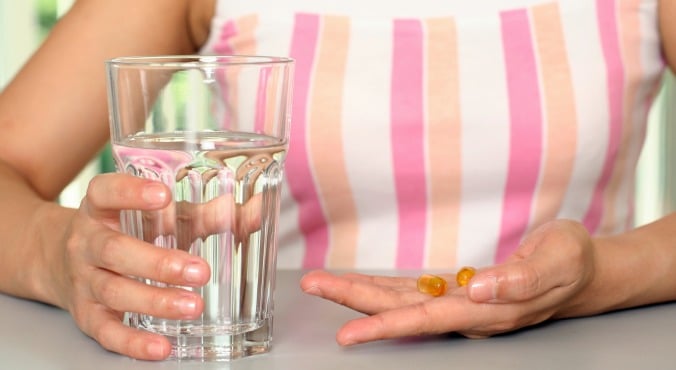
Image: iStock
Despite being known internationally for our hot summers and endless days spent at the beach (ha, we wish!), it’s estimated 30 per cent of Australians suffer from vitamin D deficiency. And it seems we’re missing out on some serious health benefits as a result.
Findings from a new study, presented at the Society for Endocrinology annual conference in Edinburgh, suggest daily vitamin D supplements could lower blood pressure and increase exercise performance.
Researchers from Edinburgh’s Queen Margaret University in Edinburgh gave 13 adults of a similar age and weight either 50 micrograms of vitamin D a day or a placebo for two weeks.
Those being given vitamin D had lower blood pressure and lower levels of the stress hormone cortisol in their urine compared to those on the placebo.
Other benefits were found on the sports field, with results showing the participants were able to cycle six and a half kilometres in 20 minutes, one and half kilometres more than they could at the start. Interestingly, despite cycling 30 per cent further in the same time, they also showed lower signs of physical exertion.
While only taken from a very small sample, the results show promise for future research.
"Our pilot study suggests that taking vitamin D supplements can improve fitness levels and lower cardiovascular risk factors such as blood pressure. Our next step is to perform a larger clinical trial for a longer period of time in both healthy individuals and large groups of athletes such as cyclists or long-distance runners," said study co-author Dr Raquel Revuelta Iniesta.
Learn how to make a delicious vitamin-packed green smoothie with the Paper Tiger team. (Post continues after video.)

